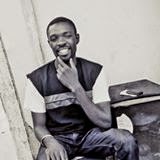
Argentina
were World Cup holders back in 1987 and Diego Maradona was the planet's finest
footballer but, in a poor part of the country's third-largest city, Rosario,
something very significant also took place: Lionel Andres Messi was born.
The third son to Jorge, a steel worker, and
Celia, a cleaner, young Lionel weighed in at just three kilos and was a mere 47
centimetres in height. He grew into the greatest goalscorer in Champions League
history - but it was anything but easy.
Football was part of Leo's life from day one.
Rosario Central were crowned champions of Argentina two weeks before Messi's
birth, but little Lionel would inherit his father's passion for the city's
other club: Newell's Old Boys.
"When
his mother sent him off to run errands, Leo always took his football with
him," his brother Matias once said. "And if he didn't have one, he
would make one out of plastic bags or socks."
Even from the age of three, Leo and the ball
were best friends. "I got given my first football when I was very young:
three, maybe, or four," Messi said a few years ago. "It was a present
and from then on it was the only present I ever wanted, Christmas, birthday or
whatever: a ball."
Young Leo went along to watch his brothers play
at local club Grandoli, a modest team with no money and a dirt pitch in the
south of the city. Their youth coach back then was Salvador Aparicio - and one
night he found himself a player short.
"I looked up to the stands and saw him
playing with a ball," he told Goal in a recording for partofthegametvbefore his death in 2008.
"But he was so small, so we decided to wait for the other player to turn
up. But he didn't, so I asked Lionel's mother if I could borrow him.
"She didn't like the idea. She said he had
never played [in a match] before. His grandmother was there too and she said:
'Come on, let him play'! So they let me borrow him.
"The first time the ball came to him he
just looked at it and let it pass. He didn't even move. But the next time the
ball came to him, it virtually hit him on the left leg. Then, he controlled it
and started running across the pitch. He dribbled past everyone crossing his
path. I was screaming for him to shoot, but he was too small. Ever since that
day, he was always in my team."
That was at the age of five and, before long,
Messi was not only dribbling, but shooting and scoring too.
"Later,
in the youth teams, he scored six or seven goals in every match," Aparicio
added. "Instead of waiting for the goalkeeper to kick the ball, he would
take the ball off him and start dribbling all over the pitch. He was
supernatural."
At the age of nine, Messi joined the club he
still supports even today, Newell's, and was part of an exciting generation
which lost just one match in four years. Little Leo, however, was the shining
star of the Maquina de la '87 (the '87 Machine) - so named
because all of its players had been born in 1987.
By the age of 11, however, it emerged that Messi
was suffering from a growth hormone deficiency. Without the necessary
treatment, his dreams of a career in football would be dashed.
Contrary to popular belief, Newell's did try and
pay for treatment for their promising player, but with the club in crisis and
few funds available, Messi's father grew frustrated. Social security saw to
some of the medical bills, but the family were struggling to make ends meet.
Jorge Messi considered moving the whole family
to Australia, but believed his son's football skills could help them to
overcome their financial problems. He offered Lionel to River Plate and the
young forward impressed as a 13-year-old against boys three years his senior in
a trial alongside future international team-mate Gonzalo Higuain.
But Messi's father asked River for a job and a
house in Buenos Aires and River took exception, while Newell's were also
playing hard ball. So the move never materialised.
Instead, Jorge met with representatives of a scouting firm
who called Argentine lawyer Juan Mateo, and a video of Messi kicking an orange
(113 times in a row) and a tennis ball (120 times) was sent to Barcelona scout
Josep Minguella.
Remarkably, that was enough to secure a trial at
Barca and Messi travelled to the Catalan capital along with his father and one
of the intermediaries, Fabian Soldini.
The forward's first contract was signed on a
napkin by his father, Minguella and former Barca midfielder Carles Rexach, but
his future remained uncertain for three years. Jorge was out of work and the
club went back on several promises until a €4,000 per month contract allowed
the family to breathe easily in 2004.
Later that year, a much taller and stronger
Messi made his debut for the first team at the age of 17 and also scored his
first Barca goal - with a beautiful lob - against Albacete that same season. A
decade on, he has now not only become La Liga's greatest goalscorer, but also
leads the scoring charts in European Cup and Champions League football.
"When we first saw him, he was so small
that we wondered what he was doing here," Gerard Pique once said of little
Leo. But how he grew.















